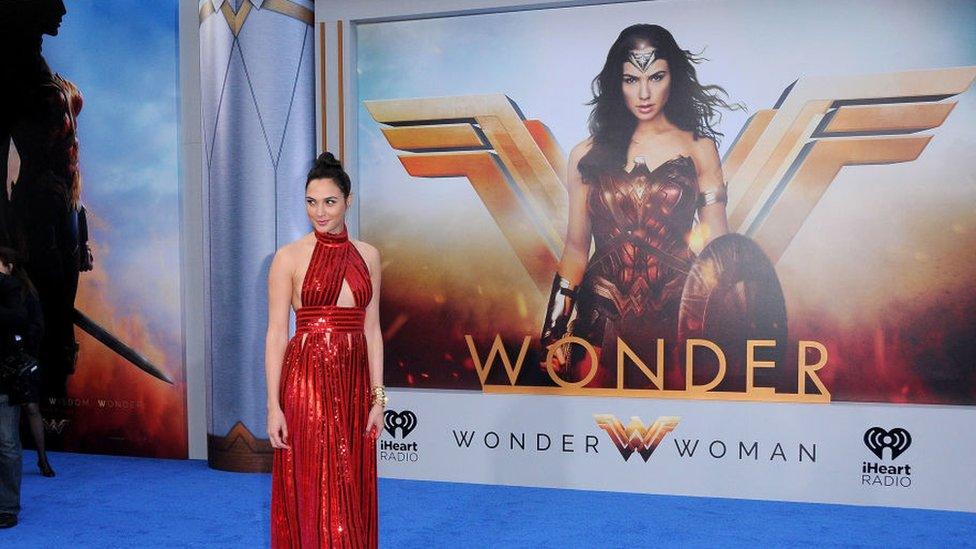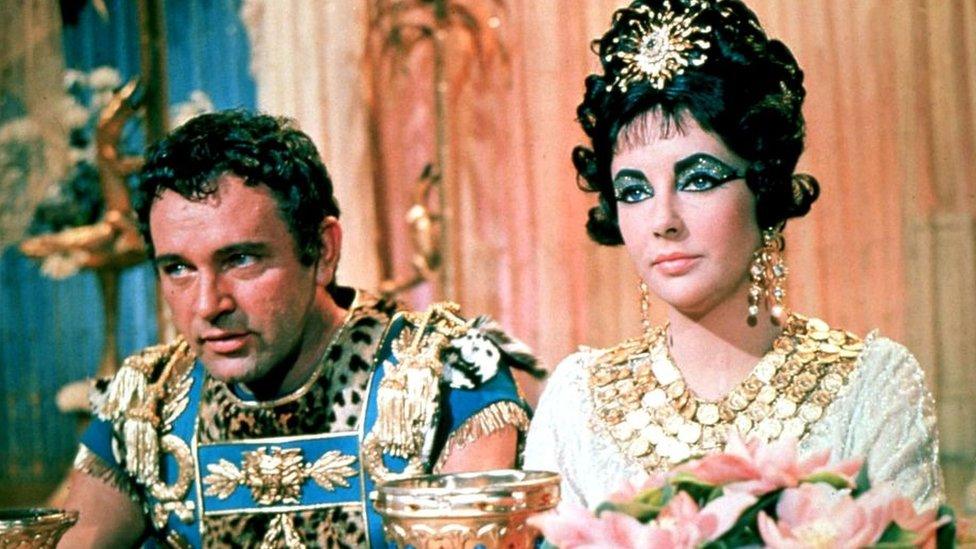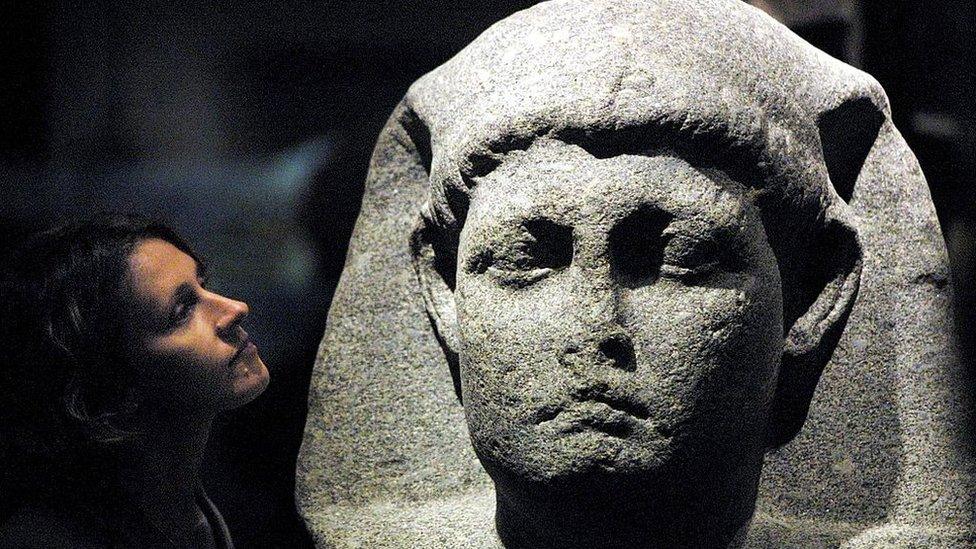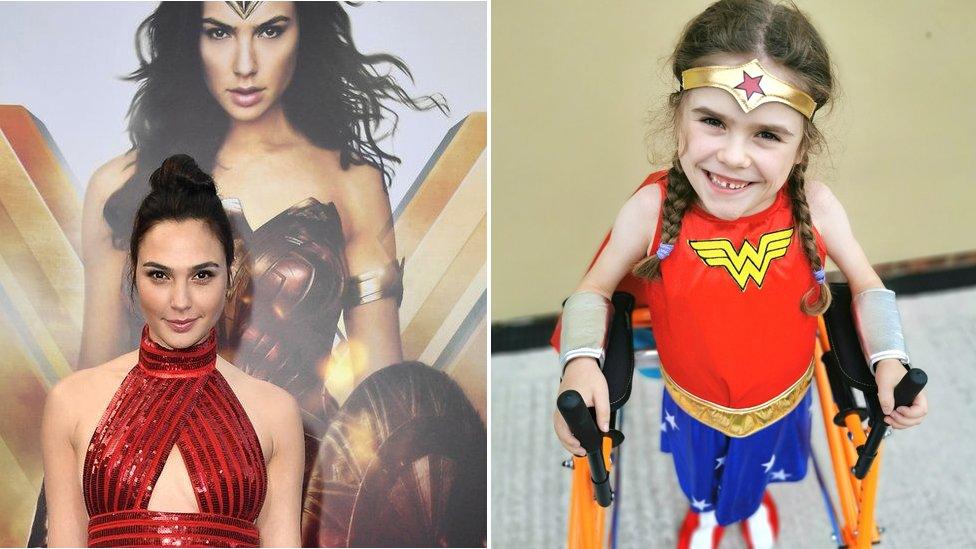Gal Gadot's Cleopatra film sparks 'whitewashing' claims
- Published

Gal Gadot played Wonder Woman in the 2017 Hollywood film
Plans for a new movie about Cleopatra have sparked a controversy before filming has even started.
The role of the famed ancient Egyptian ruler is to be played by Israeli actress Gal Gadot, best known for her Hollywood depictions of Wonder Woman.
The announcement has led to a row on social media with some alleging "cultural whitewashing", where white actors portray people of colour.
Some have said the role should instead go to an Arab or African actress.
Cleopatra was descended from an Ancient Greek family of rulers - the Ptolemy dynasty. She was born in Egypt in 69BC and ruled the Nile kingdom when it was a client state of Rome.
Gadot herself reportedly commissioned the film, external and will co-produce it.

Elizabeth Taylor famously played Cleopatra in a 1963 production
The row reflects a growing debate in Hollywood over casting and identity, and whether actors should play characters of different ethnicities to themselves.
Writer on Africa, James Hall, said, external he thought the filmmakers should find an African actress, of any race.
US writer Morgan Jerkins tweeted, external that Cleopatra should be played by someone "darker than a brown paper bag" as that would be more "historically accurate".
"Gal Gadot is a wonderful actress, but there is an entire pool of North African Actresses to pick from. Stop whitewashing my history!" posted another user., external.
Other social media users argued that Cleopatra was more Greek or Macedonian than Arab or African.

The row over Gal Gadot as Cleopatra draws on contemporary arguments over national culture, religion and gender politics.
But the ancient Middle East wouldn't conform to many of our modern views of identity.
Cleopatra was on the throne well before Christianity, for example, and centuries ahead of the Arab conquests of North Africa - she was the last of the Ptolemaic rulers; born in Egypt, descended from Ancient Greeks and dominated by Rome.
But there are plenty more problems with popular depictions of the ancient Nile Queen - often cast as a powerful seductress replete with a sensual, oriental mystique.
That image - including Elizabeth Taylor's famous portrayal - is likely a myth handed down to us by Latin love poets years after Cleopatra's death.
The thousands of depictions of her through the ages are "based on a perilous series of deductions from fragmentary or flagrantly unreliable evidence" according to the British historian Mary Beard.
So little is really known, she adds, that Cleopatra should appear to us today as "the queen without a face".


Statues of Cleopatra have been preserved but historians say we cannot be sure exactly how she looked
Israeli commentators suggested some criticism was based in anti-Semitism.
The Jerusalem Post journalist Seth Frantzman said it made no sense to exclude Jews from playing roles from the Middle East, "when Jews are primarily a people from the Middle East either with distant or recent roots.

You might also be interested in:

"The idea that casting should exclude Jews is shameful and shows a lack of education for the commentators," he said.
Israel's embassy in Washington tweeted: "One icon playing another! Excited for this new take on Cleopatra!"
Gal Gadot's spokesperson declined to comment on the row.
- Published3 September 2020

- Published28 September 2020

- Published12 September 2020
